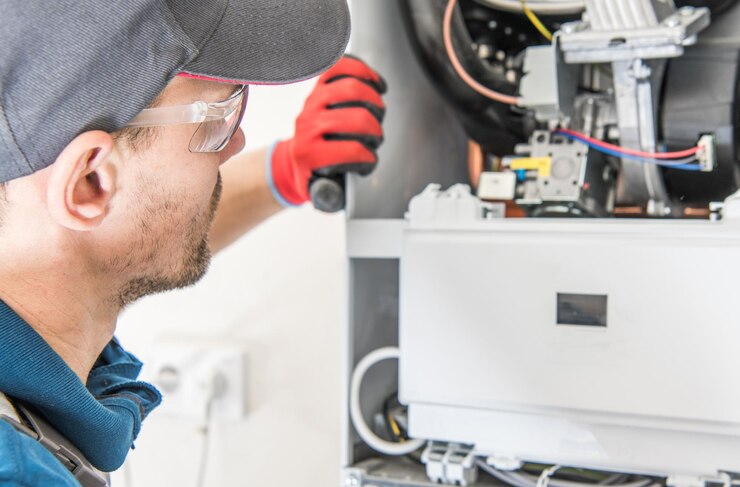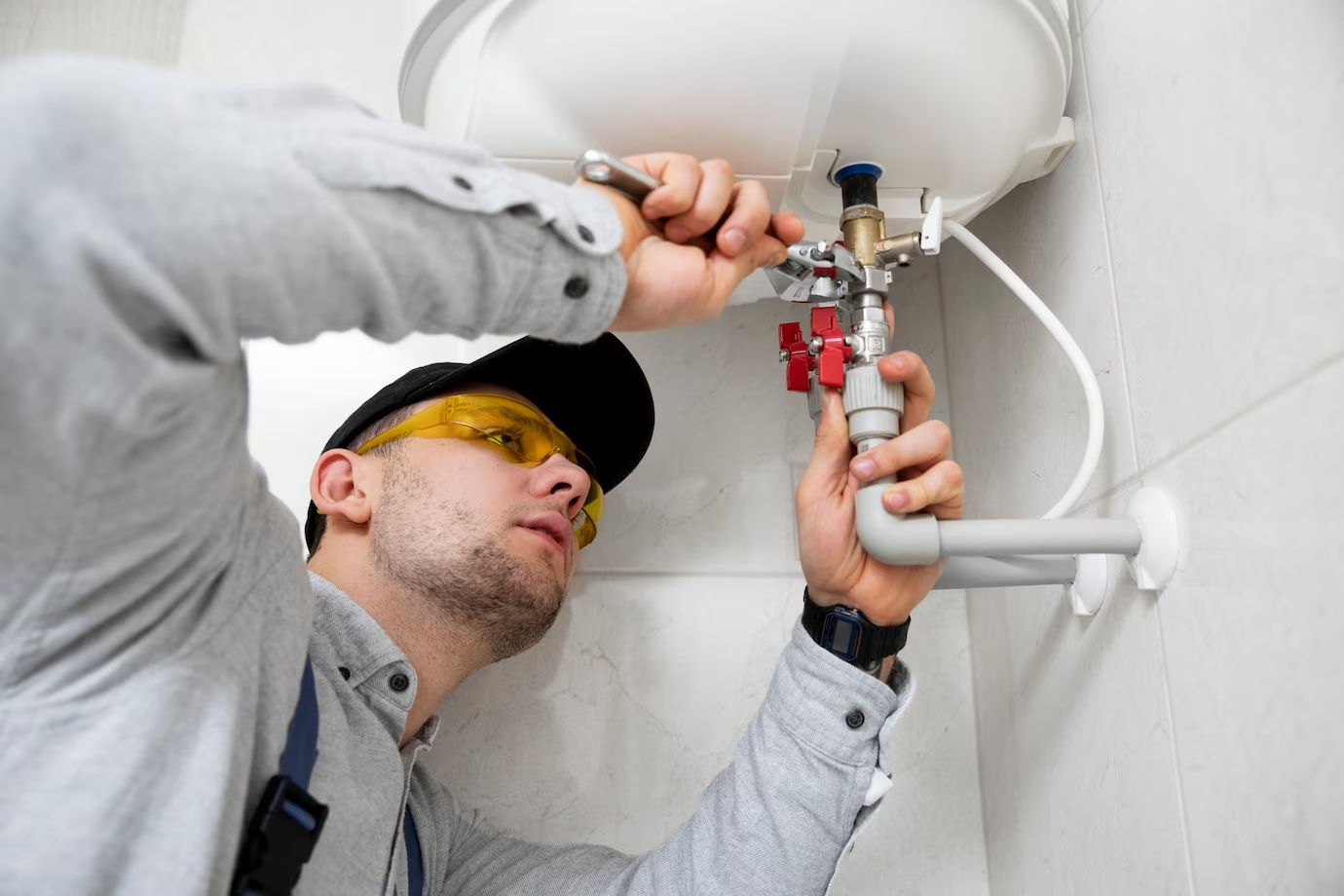A water heater is one of the most essential appliances in any home, providing hot water for cooking, cleaning, and bathing. While it often goes unnoticed, it can quickly become a problem when it starts malfunctioning. Recognizing the warning signs early can save you from costly repairs or even a complete replacement. Here are ten signs your water heater needs repair before it fails.

Fluctuating Water Temperature
If you notice that your water temperature is inconsistent, your water heater may be struggling. One moment, the water is hot, and the next, it turns lukewarm or even cold. This could be due to sediment buildup in the tank, a malfunctioning thermostat, or failing heating elements. Ignoring this issue can lead to further complications and an eventual breakdown.
Discolored or Rusty Water
Rusty or discolored water coming from your faucets is a clear indication that your water heater may be corroding from the inside. Over time, the metal components inside the tank deteriorate, leading to rust formation. If left unaddressed, this corrosion can create leaks and contaminate your water supply. In some cases, the problem may stem from rusty pipes, but a professional inspection can determine whether the issue lies with your water heater.
Strange Noises Coming from the Tank
Unusual noises, such as popping, banging, or rumbling sounds, are a sign of trouble. These sounds usually result from sediment buildup at the bottom of the tank. As the heating elements work to warm the water, the sediment hardens and causes the heater to work harder than necessary. This extra strain can lead to overheating and premature failure of the unit if not addressed through regular maintenance and flushing.
Water Takes Too Long to Heat
A properly functioning water heater should be able to heat water quickly and efficiently. If you find that it’s taking much longer than usual to get hot water, it could be due to issues with the heating elements, sediment buildup, or a faulty thermostat. These problems can reduce the efficiency of the heater, causing an increase in energy consumption and higher utility bills. A professional tune-up from Water Heater Care by Corley can restore your unit’s efficiency.
Low Hot Water Pressure
Weak hot water pressure can indicate that sediment has accumulated inside the water heater or the plumbing lines. Mineral deposits can clog the pipes and restrict the flow of hot water throughout your home. If this issue persists, it may require flushing the tank or replacing certain components to restore normal water pressure.
Leaks Around the Water Heater
Water pooling around the base of your water heater is a serious issue that should never be ignored. Leaks can be caused by a failing pressure relief valve, corrosion, or a crack in the tank itself. Even a small leak can quickly escalate into major water damage, leading to costly repairs. A professional plumber can assess the severity of the leak and determine whether repair or replacement is necessary.

Foul-Smelling Water
If your hot water has a strange, unpleasant odor, it may be due to bacterial growth inside the tank. This is especially common in homes that use well water, where bacteria can thrive in warm environments. The most common solution is to flush the tank and disinfect it using a mixture of water and hydrogen peroxide. However, if the issue persists, you may need to replace the anode rod, which helps prevent bacteria buildup.
Higher Energy Bills
An unexplained increase in your energy bills can be a sign that your water heater is working inefficiently. As components wear out or sediment accumulates, the unit requires more energy to heat the water. This inefficiency not only leads to higher costs but also puts additional stress on the heater, shortening its lifespan. Regular maintenance can help restore its efficiency and reduce energy waste.
The Pilot Light Keeps Going Out
For gas-powered water heaters, a pilot light that frequently goes out is a cause for concern. This issue could be due to a faulty thermocouple, gas supply problems, or a draft affecting the burner. Without a properly functioning pilot light, the heater won’t be able to provide hot water consistently. A technician can diagnose the problem and make the necessary repairs to keep your unit running smoothly.
Your Water Heater Is Over 10 Years Old
Age is one of the biggest factors in determining whether a water heater needs repair or replacement. Most traditional tank water heaters last between 8 to 12 years, while tankless models can last longer with proper maintenance. If your unit is over a decade old and showing signs of wear, it may be more cost-effective to replace it rather than continuously repairing it. Newer models are more energy-efficient and can provide better performance, ultimately saving you money in the long run.
Final Thoughts
Ignoring the warning signs of a failing water heater can lead to sudden breakdowns and expensive emergency repairs. Regular maintenance, such as flushing the tank and checking for leaks, can help extend the life of your unit and keep it running efficiently. If you notice any of these signs, it’s best to call a professional plumber to inspect and repair the issue before it escalates. Addressing problems early will ensure you have a reliable supply of hot water and avoid unexpected disruptions in your daily routine.